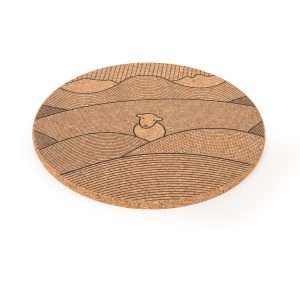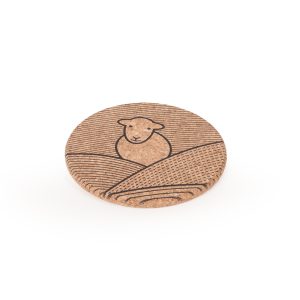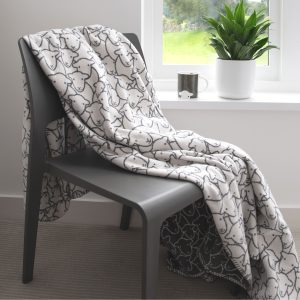At Herdy, we’re always thinking about how to do the right thing, including how we source the raw materials to make our products. It’s important that we create products that try and minimise the impact on the environment. This is why our new collection of table mats and coasters are made from one of the world’s most sustainable natural materials, cork.
Ecological & Sustainable Cork
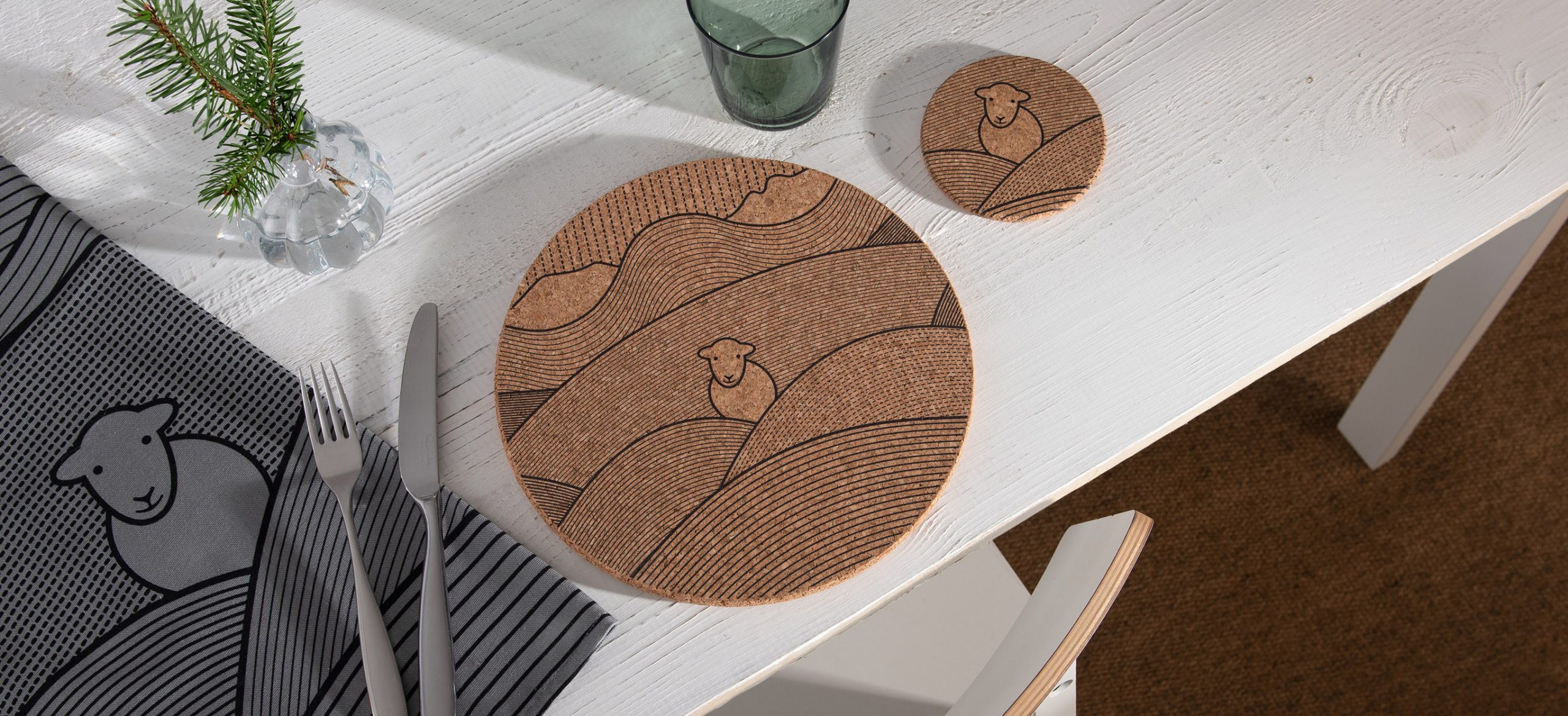
What is cork?
Cork is an eco-friendly, sustainable material. It comes from the bark of the Quercus Suber, commonly called the Cork Oak tree. This evergreen tree comes mainly from the Mediterranean basin with Portugal having both the largest natural and cultivated forests, covering over 750,000 acres. Cork trees are able to withstand forest fires due to their thick layer of protective bark – a useful survival advantage given the increasing number of wildfires, as a result of climate change. The managed cork tree forests, called Montados, provide protection to a diverse range of rare plants, fungi, mammals and birds, some of which are found nowhere else in the world.
Why is it so sustainable?
Cork harvesting is regarded as one of the most sustainable forestry practices in the world by the Forest Stewardship Council. This is because removing or harvesting the bark doesn’t harm the tree. Stripping the cork bark is actually beneficial to the health of the tree, and brings with it environmental benefits too. A cork tree is able to absorb even higher levels of carbon dioxide after the bark is harvested and, in total, Cork oak forests absorb 14 million tonnes of CO2 every year.
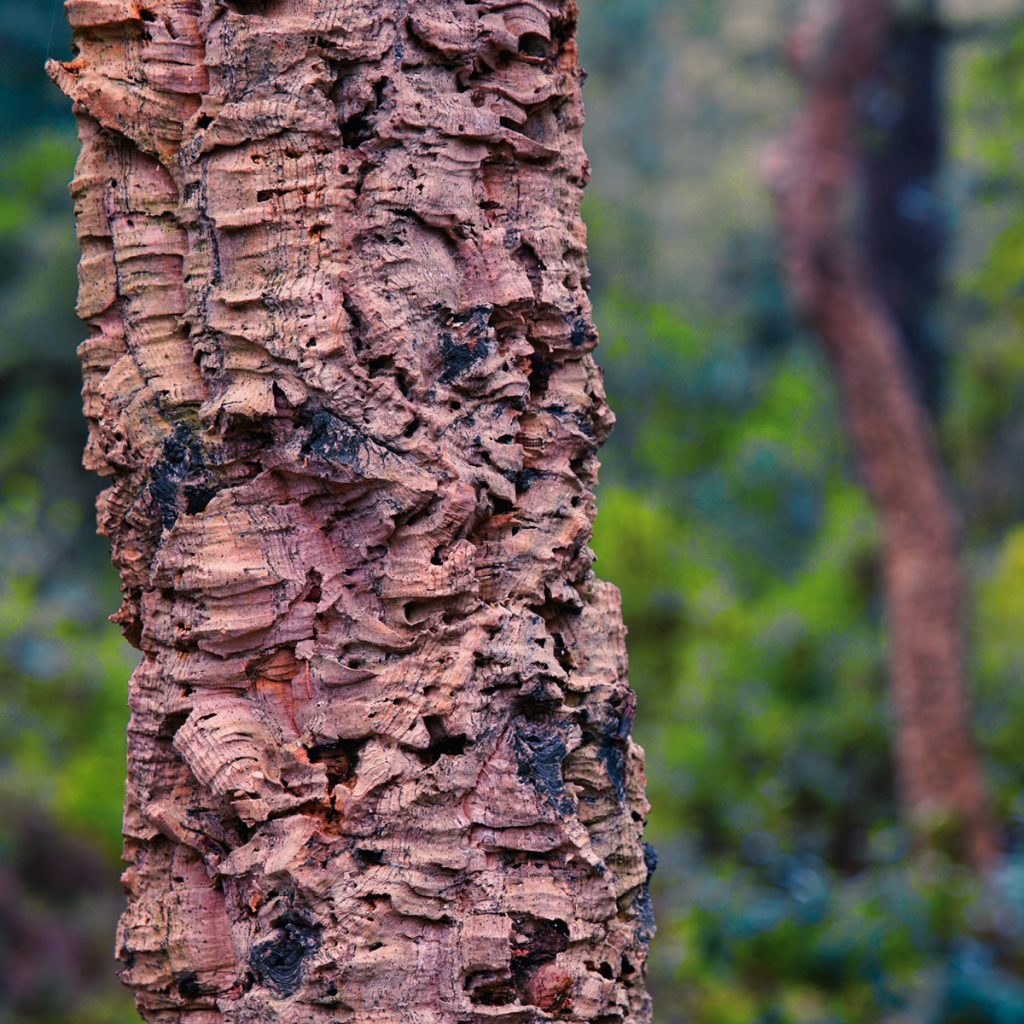
The first harvest takes place after the tree reaches 25 years old. A cork tree can be harvested up to 17 times in its lifetime (250 years), producing between 100 – 200 kilos of cork over its lifespan. Cork trees are legally protected in Portugal and people harvesting cork require specialist training so that no damage is done to the trees. The European cork industry employs over 30,000 people and is worth €1.5 billion annually, with Portugal accounting for around 50% of the total production.
Fun Fact: The Whistler Tree, is the world’s largest cork tree. Planted in 1783, Portugal listed it as a National Monument in 1988. To date, 2,645.55 pounds of bark have been harvested from the tree and it is estimated that at the end of it's lifespan, the tree will have provided raw material for over 1 million corks.
Why is cork special
Cork is an amazing natural material with a wide range of uses, from footwear to fashion accessories, wall and floor tiles, wine corks and notice boards. There is no waste in its production as even tiny chippings can be bound together and made into smaller items. It has many inherent properties such as being;
- Water repellent
- Fire Retardant
- Sound insulator
- Thermal insulator
- Sock absorbtion
- Anti – Allergy
- Absorb CO2 which improves during its natural regeneration after the bark has been harvested
- Prevent soil erosion
- 100% recyclable

